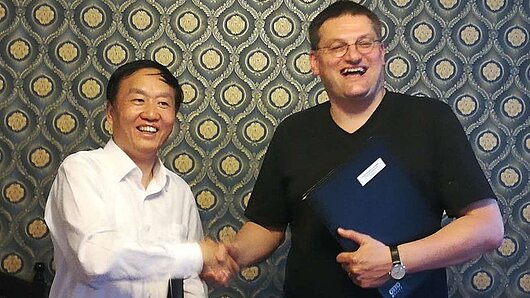High-Performance Computing Center Stuttgart

The agreement renewal, signed during the ISC17 convention in Frankfurt by SSC Director Ximin Zhou and HLRS Director Michael Resch, commits to an effort to grow this relationship, and to pursue joint efforts in areas that take advantage their institutes' strengths.
In the first round of the agreement, HLRS and SSC met periodically to present their activities, with the goal of starting a dialogue that could lead to productive collaborations. Under the new agreement, the HPC centers intend to identify and ultimately pursue concrete areas in which they can work together.
The agreement indicates several potential topics for joint activities, with a particular focus on HPC applications for engineering. These include the development of numerical algorithms, new parallel and network computer technologies, and immersive visualization technologies.
The agreement also identifies opportunities for international education and technology transfer programs in these areas. The institutes anticipate the development of workshops, courses, and international exchange of staff that will enable knowledge sharing about best practices in high-performance computing.
The renewed agreement will last for five years, running until 2022.
Editor's note: article updated on June 27, 2017.